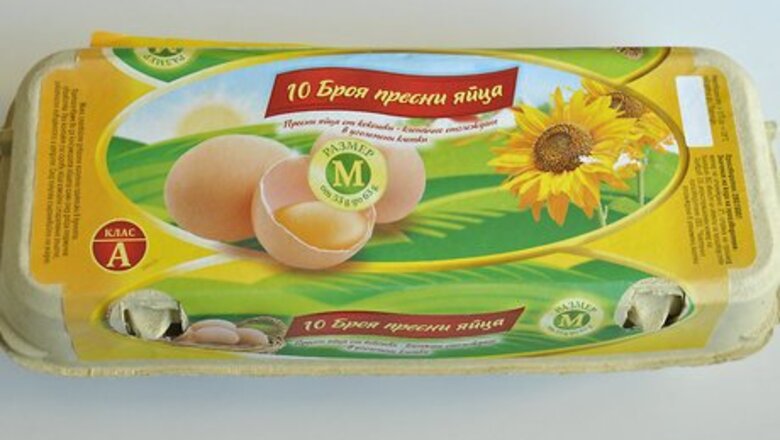
views
Refrigerating Eggs
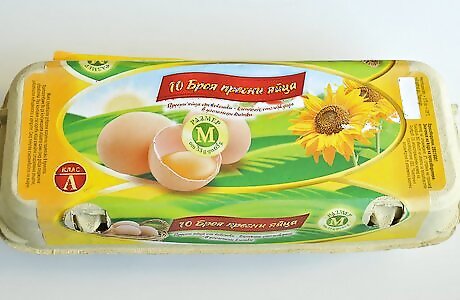
Leave the eggs in their original carton. The packaging that your eggs come in when you first buy them is also the best place for them to remain while in storage. The composite material of the carton prevents the eggshells from absorbing odors from the other items in the refrigerator. It also serves to keep them safely spaced and covered so that they won’t be cracked or crushed. Built-in refrigerator egg compartments often require you to dump all your eggs in unprotected, which can lead to big messes and wasted eggs. Leaving the eggs in their original carton also ensures that the expiration date remains in plain sight.
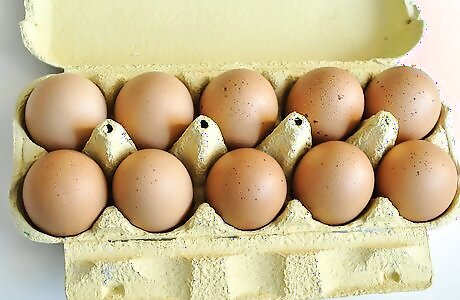
Keep the eggs large-end up. Eggs are situated in the carton with the bulbous end on top for a reason. This keeps the yolk centered inside, which protects it from breaking. A balanced, intact yolk will taste fresher and yields better results when used in miscellaneous recipes. Avoid moving or repositioning eggs too much, as this may damage the yolk or the natural air pockets inside.
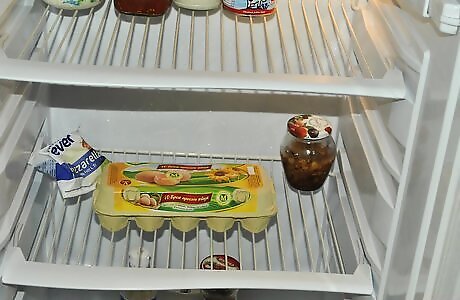
Store the eggs on a central shelf in the refrigerator. Many people think stashing their eggs on the inside of the door is more convenient. However, the main body of the refrigerator is superior for preserving eggs because it allows them to maintain a more consistent temperature. To maximize their lifespan, keep your eggs at around 40 degrees F (7 degrees C) or cooler. Frequent opening and closing of the refrigerator makes for more rapid changes in temperature around the door. Processed eggs should always be refrigerated, while it may be okay to store raw, freshly laid eggs at room temperature.
Freezing Eggs Out of the Shell
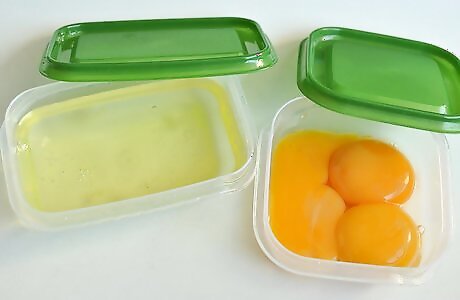
Separate the whites from the yolks. Crack the eggs you wish to freeze and pour the whites into a freezer-safe airtight container. Sift out the yolks—these should be placed in a separate container. Take care not to puncture the yolks while cracking and sifting the eggs. Protect separated egg yolks by refrigerating them in a bowl cold water. Storing the white and yolks separately will make them easier to use as needed in culinary projects.
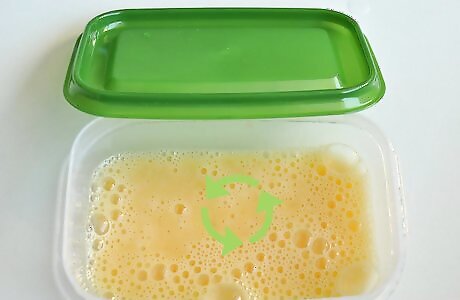
Beat the eggs together. Alternately, you can just as easily freeze whole eggs without the need to separate them first. Simply whip the eggs until they’re completely integrated, then transfer them to the freezing container. When properly frozen, whole eggs will usually stay fresh for up to a year. Freezing eggs whole can be a more space-effective storage solution.
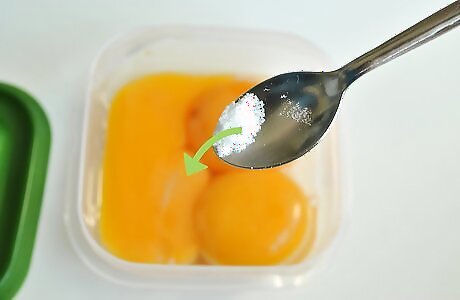
Add a pinch of sugar or salt. Eggs yolks have a tendency to harden into a thick gel when frozen. You can avoid this by mixing in a small amount of salt or sugar, which will keep the yolks from congealing. These additives make it more difficult for the proteins in the yolks to bond and solidify in low temperatures. Generally, you should aim to incorporate about ⅛ teaspoon of salt and 1 ½ teaspoons of sugar for every ¼ cup of eggs (about four large eggs). Use salt for eggs that are destined for savory dishes and sugar for those that will go into desserts and other sweet confections.
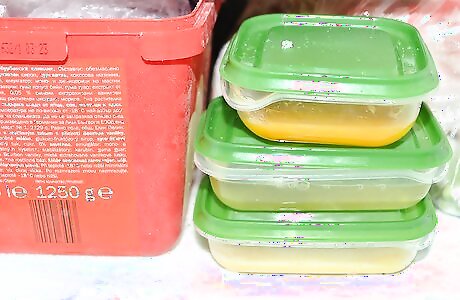
Freeze in an airtight container. As previously mentioned, the container you choose to freeze eggs should be one with a lid that makes it completely airtight. Otherwise, moisture may enter or escape from the container, potentially ruining the eggs. A lidded piece of Tupperware or similar container will work best for this purpose. If you happen to run low on spare storage containers, you can portion the yolks or white into an ordinary ice cube tray. Freezer bags aren’t recommended, as they can easily burst and create a mess. Should you be forced to use a freezer bag, make sure it’s securely sealed and that you’ve pressed out all excess air before closing it.
Determining Whether Your Eggs are Still Good
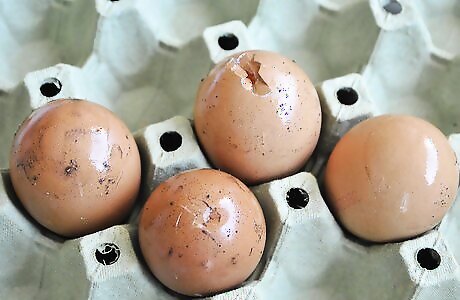
Beware of eggs that have a foul odor. The easiest way to tell when a package of eggs has gone bad is to take a whiff. After awhile, expired eggs will begin to emit an unpleasant sulfur stench. This odor is unignorable, so if you don’t detect anything offputting, there’s a good chance your eggs are okay. Fresh eggs should have no real smell of any kind. Dispose of rotten eggs down the garbage disposal rather than the trash to keep the stench from spreading throughout your home.

Look for cloudy whites. Once you crack the egg, take note of the condition of the white and yolk. Young egg whites should have a somewhat milky appearance due to their high natural protein content. As the egg ages and begins to break down, the white will become perfectly clear, and may turn thin and soupy. Clear whites don’t necessarily mean that an egg is bad, but they can be an indicator of freshness. Avoid cooking with eggs that contain watery whites, as these have a more difficult time binding ingredients together.
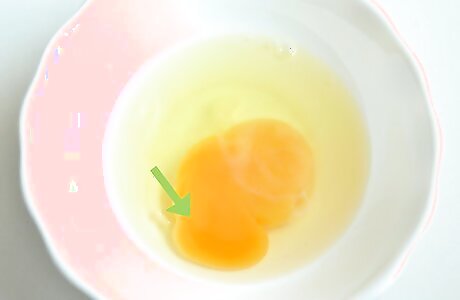
Check the consistency of the yolk. A healthy egg yolk will be firm and intact, with a rich golden-yellow color. By contrast, bad eggs will almost always contain flat, asymmetrical or easily-ruptured yolks. Dull-looking yolks are a clear sign that the egg is past its prime. Fresh eggs from pastured chickens often have large yolks that are a darker orange color and take up more of the area inside the egg.
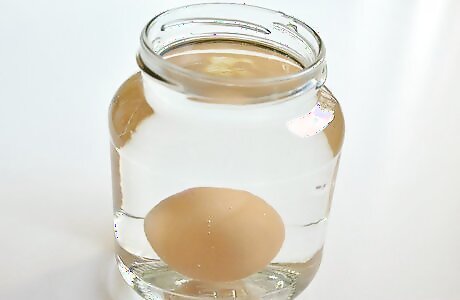
Place the egg in a bowl of water to see if it floats. One time-honored method of testing the quality of questionable eggs is to submerge them in a few inches of water. If the egg is fresh, it will sink straight to the bottom of the bowl. If it bobs to the surface or hovers near the waterline, you may be better off acquiring another batch. When the shells of older eggs deteriorate, it creates a buildup of gasses inside, which will cause them to float. The float test will allow you to find out whether your eggs are still good without having to crack them.




















Comments
0 comment